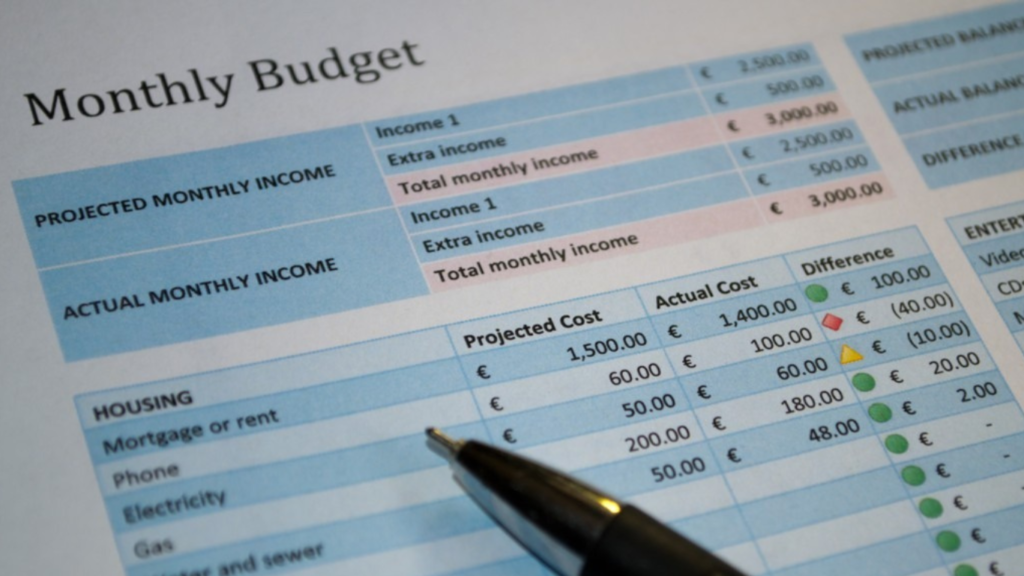You can find the term budget in different contexts; one of the most popular is in the world of business finance.
However, a budget for your finances is a detailed plan that sets out your expected income and expenses over a specific period, usually monthly or yearly.
In a budget, you must know the fundamental information about your finances, such as your income, expenses, savings possibilities, investments, debts, and financial goals.
If you don’t know how to have impeccable control over your finances and you are generally struggling at the end of the month to avoid going into debt, it is probably because you lack control over your earnings and expenses to understand your real economic situation. This is where the importance of a budget arises.
In this article, you will learn about the importance of a budget in personal finances and how to create one.
The importance of a budget lies in the fact that it is the document that will help you manage and control your financial resources effectively to achieve financial goals, maintain a balance between income and expenses, and guarantee economic stability in the short and long term. Here are some key benefits of the importance of a budget:

Clarity and control
A budget is like a map that guides you through your finances. It gives you a clear view of how much money is coming in and out of your pocket. This means there will be no unpleasant surprises or unexpected expenses to throw you off course. With a budget, you are in control of your money.
Financial Goals
Do you have financial dreams like buying a house, traveling the world, or saving for your children’s education? A budget is your ally in achieving these goals. It helps you allocate specific funds to achieve your goals and keep track of your progress.
Conscious spending
When you have a budget, you make more conscious financial decisions. It makes you think twice before impulsively spending on things you don’t need. Do you need to buy coffee every day?
Less stress related to money
One of the main causes of stress can be financial concerns. You can rest easy when you have a budget. A great deal of stress can be released when you know that you are saving money sensibly and making progress toward your objectives.
Savings and emergencies
There are many surprises in life, some pleasant and some not so much. You can establish an emergency fund with a budget to cover unforeseen costs. It also aids in future savings and the development of a financial safety net to shield you from hard times.
In short, a budget is not a restriction but a tool for financial empowerment. It helps you take control of your money, achieve your goals, and live a healthier, less stressful financial life.
How do we create an effective budget? Key steps to setting a budget
The idea of creating a budget may seem intimidating at first, but in reality, it is a powerful tool that gives us clarity, control, and direction in our finances.
In this section, you’ll dive into the key steps to creating an effective budget that fits your life and financial goals. From setting your goals to constantly tracking, we’ll explore every stage of the process. Whether you’re looking to get out of debt, save for a big project, or simply keep tighter control of your spending, mastering the basics of budgeting will help you make smarter financial decisions and achieve greater financial stability.

Set financial goals.
Setting financial goals is an essential first step in creating a budget. What are your plans for your budget? Perhaps your goals are to pay off debt, purchase a home, save for an emergency fund, or take a vacation. Establishing definite objectives provides you with direction and encourages you to stick to your spending plan.
Evaluate your financial status at this time
An efficient budget is made in two steps: first, you need to assess your financial status. Analyzing your assets—like savings, investments, and property—as well as your liabilities—like debts and obligations—is necessary for this.
So, make a list of all your sources of regular income. This can include your salary, rental income, interest from savings accounts, dividends from investments, and any other regular income.
Making a list of all your obligations and debts is also crucial.
Keep a record of all your costs.
Maintaining thorough records of your spending is one of the most crucial components of a successful budget. This entails keeping a record of every expense, including impulsive purchases and fixed monthly bills. Organize your spending by category using an Excel file or expense tracking app. This will help you find areas where you can reduce wasteful spending and make better financial decisions.
Every expense you have, no matter how small, should be recorded in your budget. You must have the discipline to keep detailed records, because only then will you be able to understand what your true current financial situation is.

Add your monthly earnings and expenses.
You should keep a record of all of your monthly income in addition to your expenses. This includes all of your income—from your salary as well as any additional sources like rent, investments, or side gigs.
Clear your debts.
Debt interest is a ghost that grows on you without your knowledge, costing you far more than you used to. You must pay off debts with high interest rates first. Set aside money each month to pay off debts. As you pay off debt, put the money aside for other things like investing or saving.
Conversely, you ought to enumerate every expense that you incur daily, including rent, utilities, insurance, and food costs. Your budget will work more efficiently the more accuracy you have at this point. Don’t forget to account for variable expenses (like eating out, credit card usage, etc.) as well as fixed expenses (like your house rent and fixed loans)

